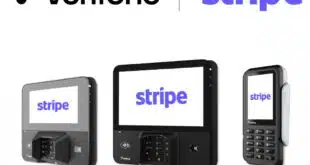Momentum behind a standard for the exchange of consumers’ financial data between fintech apps and banks gained strength Monday with an announcement that a trade group supporting the standard has added 39 members since April. The group, the Reston, Va.-based Financial Data Exchange LLC, now claims a membership of 140 firms, having started out with 21 founding members in 2018.
With the group’s expansion, more than 12 million U.S. consumers are able to connect payment and other financial apps to their financial accounts through FDX’s application programming interface and its technical standards, the group said. The inclusion of more members will help broaden and develop the group’s standard, officials said.
“What we have learned so far is that you have to have everyone at the same table in order to build a standard that works for everyone, and these new members are helping FDX continue to broaden the tent and ensure the FDX API is truly interoperable,” said Don Cardinal, FDX’s managing director, in a statement.
Among the new members are a number of both technology providers and financial institutions, including Canadian players such as CIBC and National Bank of Canada, as well as immediately recognizable consumer names such as Quicken Inc. Intuit Inc., which is a founding member, sold its Quicken unit four years ago. Oher organizations could also be using the standard, a spokesman adds, since the API is royalty-free.

The business of connecting consumers with their financial accounts via third parties, commonly known as data aggregators, has grown rapidly in recent years, so much so that both Visa Inc. and Mastercard Inc. recently struck deals to acquire two prominent players in this business. Visa agreed in January to acquire Plaid Inc. for $5.3 billion, while Mastercard said in June it would buy Finicity Inc. for $825 million.
The deals underscore the higher profile these data pipelines have assumed as more and more consumers use mobile apps to manage payments and other financial functions. The proportion of Internet users relying on at least one fintech app shot up from 18% in 2015 to 75% last year, according to data from Ernst & Young cited by Visa.
As the industry has grown, the FDX has sought to replace a common access method known colloquially as screen scraping with its API standard. Screen scraping involves consumers entrusting data aggregators with their access credentials for various accounts. The API is widely seen as a more secure and standardized method to make these connections on behalf of app users.





